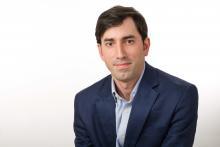The "Meta-Issues" Behind the Sanders-Clinton Contest
The Democratic presidential primary race is shaping up to be a fascinating contest between the voters' views of two distinct political personalities. Some find this state of affairs confounding, believing that the election should have been a "slam-dunk" for Hillary Clinton—the former First Lady, twice elected Senator from New York, and former Secretary of State. That a 74-year-old socialist Senator from Vermont is giving her, quite literally, a "run for the money", is stunning.
Polls show the once cavernous gap that separated the two is closing. They tied in Iowa and Sanders defeated Clinton soundly in New Hampshire. He also raised more money than Clinton in January, all from small individual donors, putting an exclamation point on his fundraising ability with a stunning two day intake of eight million dollars following the New Hampshire victory—all from online contributors.
In an effort to understand the Sanders' phenomenon I have identified several factors that appear to be defining this contest. Some are issue related, while others are driven more by, for lack of a better term, "meta-issues".
On one level, Clinton is running on a rather traditional liberal/moderate platform. She emphasizes her experience and her record of "getting things done". Her speeches include a litany of programs she proposes to implement and causes she will champion. She will fight for women and children, working families, immigrants, health care, civil rights, etc.—offering to make incremental but real change. At the same time, she insists that she will be fiscally responsible. And she will support a muscular foreign policy that will defend American interests and allies.
Sanders' stump speech, on the other hand, drives home a single theme—the fact that the American economy and politics are dominated by a handful of billionaires who have "rigged" the system to support their interests at the expense of the majority. With this foundation laid, Sanders calls for a political "revolution" that will mobilize voters to demand a leveling of the playing field, offering such expansive programs as universal health care and free college education. He proposes paying for these by imposing taxes on the very wealthy and on excessive Wall Street behavior. And he emphasizes a more restrained foreign policy that avoids irresponsible, costly, unwinnable wars.
Sanders' edge is that he offers "bumper sticker" clarity. Because his programs and proposals all flow from a coherent economic and political philosophy, his message more easily resonates with many voters. This clarity is something that Republicans have long owned and Democrats have missed. While Republicans could speak of "small government and individual freedom", Democrats could only respond with a bewildering array of causes and programs that lacked a central over-arching theme. With Sanders, Democrats can respond with theme like "a government that cares" and "we all matter".
Clinton criticizes Sanders' program as unachievable "pie in the sky", countering that her approach is incrementalist and real. But Democrats and independents who may not agree with Sanders' philosophy or even believe that his far-reaching proposals will be implemented, share his anger at the corrosive effects of inequality and have been captivated by his campaign.
More significant still is the important fact that voters, whether or not they agree with Sanders program, appear to trust him more, believe that he means what he says, and feel that he really does care about their concerns. This comes through quite clearly from my discussions with a wide range of voters I've met in several states and from letters I've received from others who have expressed their views on the two candidates. Their reactions and the attitudes that come through in national polls need to be understood.
In this regard, the entrance/exit polls from Iowa and New Hampshire are instructive in that they help delineate the attitudes of the constituencies supporting each of the candidates. Clinton wins easily in two areas—"the right experience to be president" and "can win in November". On the other hand, Sanders overwhelmingly dominates in two other areas—"is honest and trustworthy" and "cares about the needs of people like me". These are the "meta-issues" that have worked to Sanders advantage.
The Sanders support base overlaps, to some degree, with what was called the "Obama coalition" in that it includes young voters. In his insightful book, "The Way We'll Be: The Transformation of the American Dream" , my brother John Zogby, defines the value orientation and world-view of the distinct age groupings that make up the American electorate. The youngest of these, he calls the "First Globals". They are the first generation of Americans who are global in their worldview and accepting of all forms of diversity. They are willing to learn from others and see themselves as citizens of the world. They are open to other religions and define "spirituality" not in terms of an organized church, but values that connect them to others and to the planet. And, most importantly, they are attracted to qualities like openness, authenticity, and integrity. These are the "meta-issues" that have attracted young voters to Sanders and may not be transferable to Clinton should she emerge victorious in the primaries. The exit polls, for example, show Sanders beating Clinton by a margin of six to one among young voters.
There is an intriguing subtext to John's study that is also worth considering. While, in the past, younger generations looked to older generations for guidance, today, that process has been reversed. Increasingly, older generations are learning values from their children. As was the case in the Obama campaign in 2008, many older folks I've met this year tell me that they have been inspired to support Sanders because of the enthusiasm he has created among their children or younger voters, in general.
And so, as this drama plays out, it will be important to see how this generational and values driven struggle plays out. Will voters opt for experience and the perceived "ability to win" or will they gravitate toward a candidate they trust who they perceive cares for them? From what we have seen so far, it is these "meta-issues", more than anything else, that may decide the outcome.
Dr. James J. Zogby ©, President of the Arab American Institute
TO FOLLOW WHAT'S NEW ON FACTS & ARTS, PLEASE CLICK HERE!


















